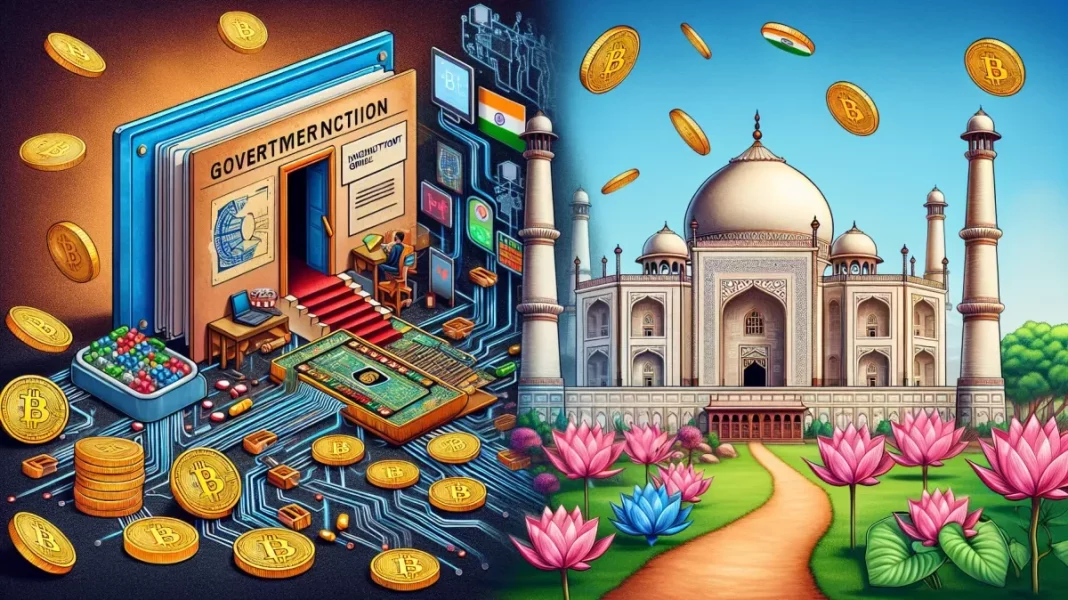In the developing world of digital economies, India is fast emerging as a key player. The subcontinent, with a population of over 1.3 billion and an ever-growing tech-savvy populace, is becoming a hotbed for the rise of cryptocurrencies, particularly Bitcoin. With the advent of Bitcoin and the subsequent introduction of Bitcoin gambling, the potential opportunities and hurdles within the Indian context necessitate a robust and in-depth view. This article seeks to delve into the present landscape, possible regulations, and the opportunities around Bitcoin gambling in India.
The Arrival of Bitcoin Gambling in India
In the last decade, with the adoption of the internet and smartphone technology among the general populace, online gambling has gained substantial traction in India. According to a study by KPMG, the online gambling industry in India is expected to be worth over $1 billion by 2021. Over 40% of internet users in India visit online gambling sites.
It is within this setting that Bitcoin gambling has found fertile ground. Bitcoin, with its decentralized and anonymous nature, offers players a way to navigate through the gray areas of legal gambling. Bitcoin casinos have gained popularity among online gamblers due to features such as instant payouts, low transactional fees, and enhanced privacy.
India’s regulations regarding Bitcoin
The regulatory environment concerning cryptocurrencies, particularly Bitcoin, in India is a complicated one. Its future is uncertain, primarily due to changing regulatory positions. In April 2018, the Reserve Bank of India (RBI) issued a circular, barring banks from dealing in digital currencies. Cryptocurrency exchanges challenged this ban, leading to a Supreme Court verdict in 2020 which lifted it.
However, this does not mean Bitcoin is entirely legal. The RBI’s stance on digital currencies remains uncertain, and the government has shown mixed reactions toward digital currency. A bill proposing a nationwide ban on ‘private cryptocurrencies’ was in Parliament’s pipeline in 2021, but its exclusion from the recent Monsoon Session’s agenda might suggest a less stringent stand. Notably, while the bill suggests the prohibition of private cryptocurrencies, it also proposes the establishment of a facilitative framework for an official Indian Digital currency.
Emerging Regulation for Bitcoin Gambling
Presently, the Public Gambling Act, 1867, is the centralized legislation governing gambling in India. But, it is ineffective in dealing with online gambling, let alone Bitcoin gambling, given its pre-internet era origin. The Information Technology Act, 2000, while empowering the government to block certain foreign websites, does not provide any definitive solution for online or Bitcoin gambling.
The classification of ‘game of skill’ versus ‘game of chance’ by the Indian Constitution creates a further gray area for online and Bitcoin gambling. While ‘games of chance’ are mostly illegal, ‘games of skill’ are permissible. Online rummy and poker have been legally recognized as ‘games of skill.’ The determination of where Bitcoin gambling falls within this dichotomy would be crucial.
Opportunities Around Bitcoin Gambling
As the regulatory environment evolves, Bitcoin gambling carries significant potential in the Indian market. Bitcoin, as a currency, can circumnavigate traditional banking systems and provide access to millions of unbanked or underbanked Indians. Additionally, Bitcoin’s global nature can attract international players and operators, enhancing the market size exponentially.
At the same time, it poses an opportunity for the regulatory authorities to bring this currently grey area within the ambit of law and regulation. This can potentially give rise to safer and more secure betting platforms and open up a new revenue stream for the government through taxes and license fees.
A well-regulated Bitcoin gambling industry can contribute to technological advancements, facilitate the rise of blockchain technology, and spur legal and financial innovation. While ethical concerns around gambling remain relevant, it’s becoming increasingly clear that the evolving world of Bitcoin gambling presents more opportunities than challenges.
Despite its tumultuous regulatory journey, Bitcoin has faithfully charted new territories. As India stands on the brink of a digital revolution, Bitcoin gambling might just become its new frontier!
Sources:
1. KPMG Report [Link to KPMG report]
2. Supreme Court Verdict, Internet and Mobile Association of India v. Reserve Bank of India [Link to Supreme Court Verdict]
3. RBI Circular on Prohibition on dealing in Virtual Currencies [Link to RBI circular]
4. Details of Bill on cryptocurrencies in Parliament [Link to Bill]
5. Public Gambling Act, 1867 [Link to Act]
6. Information Technology Act, 2000 [Link to Act]
7. Classification of games of skill versus games of chance [Link to relevant documentation]
8. Benefits and challenges of Bitcoin gambling in India [Links to relevant studies, expert opinions]



